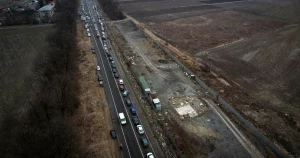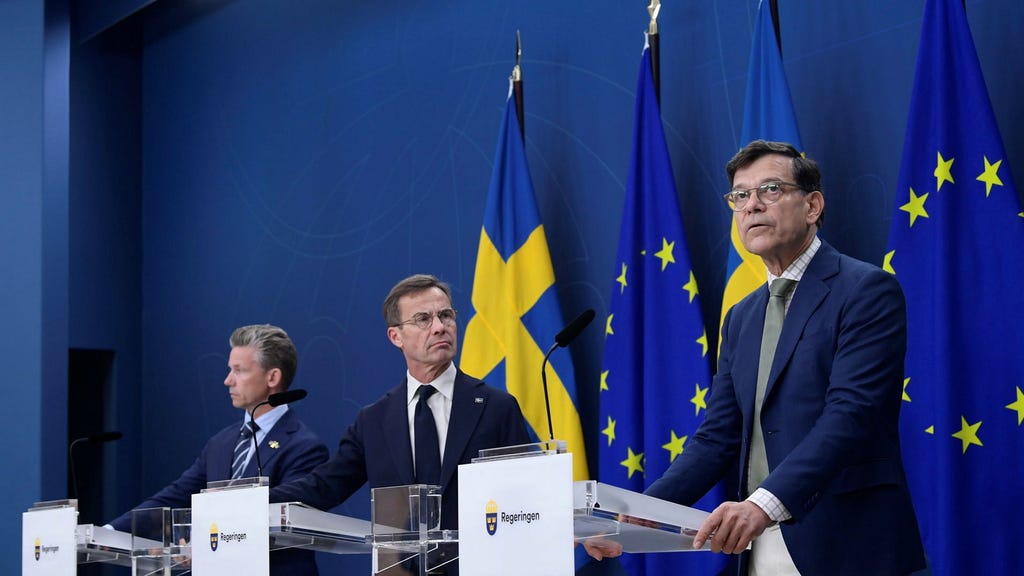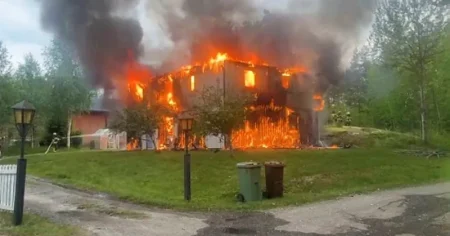Paragraph 1: The Incident and Initial Reactions
In March 2023, Sweden’s National Security Advisor, Henrik Landerholm, inadvertently left four classified documents at the Gällöfsta conference center. At least one of these documents was marked with a security classification, signifying that its unauthorized disclosure could potentially harm national security. This revelation sparked immediate concerns and prompted investigations. DN, a Swedish newspaper, broke the story in early December, triggering calls for accountability and transparency from opposition parties. The incident raises serious questions about the handling of sensitive information within the government and the potential consequences of such lapses.
Paragraph 2: Legal and Investigative Ramifications
Gross negligence with classified documents can constitute a criminal offense in Sweden. Consequently, the Special Prosecutor’s Office for Security Matters has taken an interest in the Landerholm incident. While the exact legal course of action remains unclear, the possibility of an investigation looms. The incident highlights the legal framework surrounding the protection of classified information and the potential penalties for mishandling it. This incident’s legal repercussions could significantly impact government protocols and individual accountability.
Paragraph 3: Political Pressure and Demands for Accountability
Social Democrats, the opposition party, have demanded that Prime Minister Ulf Kristersson appear before the Parliament’s Defense Committee to address the incident. Peter Hultqvist, chair of the committee and a former defense minister, emphasized the unusual nature of summoning the prime minister, underscoring the severity of the situation. Hultqvist stressed the need for full transparency and Kristersson’s direct engagement with the issue. This political pressure adds another layer of scrutiny to the incident and emphasizes the importance of addressing concerns surrounding government transparency and accountability.
Paragraph 4: Government Response and Lack of Transparency
The government’s response to the incident has been marked by a distinct lack of transparency. Kristersson initially declined to comment, and his press secretary has subsequently avoided questions and interview requests. The government opted not to file a police report, stating that it was not deemed "necessary." A heavily redacted damage assessment report further fueled suspicions of a cover-up. The absence of forthright communication from the government raises concerns about its commitment to transparency and accountability in matters of national security.
Paragraph 5: Expert Analysis and Further Concerns
Experts consulted by DN believe it is likely that unauthorized individuals accessed the classified documents, given the government’s handling of the situation. Lennart Ohlsson, a former chief within the Military Intelligence and Security Service (Must), pointed out that if someone like a cleaning staff member discovered the documents, it would constitute unauthorized access. The government’s conducting a damage assessment suggests such a scenario occurred. This speculation adds to the gravity of the incident and highlights the potential vulnerabilities in security protocols.
Paragraph 6: Landerholm’s History and Political Connections
This incident is not Landerholm’s first security-related lapse. He previously left his mobile phone at the Hungarian embassy and a notebook at the Swedish Radio headquarters. These prior incidents raise questions about Landerholm’s suitability for his sensitive role. Adding to the complexity is Landerholm’s personal connection to Kristersson; they are childhood friends. This relationship raises questions about potential bias and the government’s willingness to hold Landerholm accountable. The incident has exposed potential weaknesses in government security procedures and has sparked a significant political debate about accountability and transparency. The long-term consequences of this incident remain to be seen.














